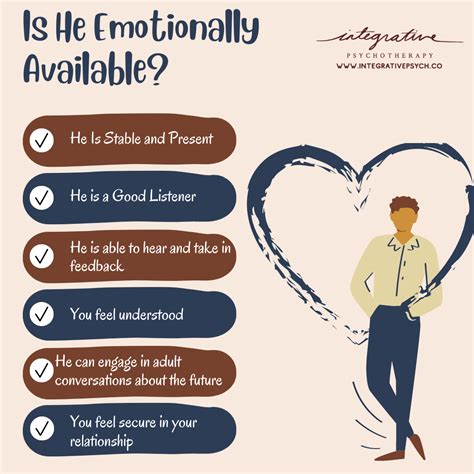
Many individuals unknowingly erect emotional barriers, hindering genuine connection. Certain phrases and behaviors can signal a guarded heart, potentially impacting relationships and personal well-being. Experts have identified key indicators revealing these hidden walls, offering insight into self-awareness and fostering healthier interactions.
Identifying Emotional Guardedness: Unveiling the Hidden Walls
Emotional guardedness, a defense mechanism characterized by reluctance to express feelings openly, can manifest in subtle yet telling ways. While often unintentional, this behavior can impede intimacy and create distance in relationships. Recognizing the signs is the first step toward fostering more authentic connections. Individuals exhibiting emotional guardedness often employ specific phrases and behaviors that act as shields, preventing vulnerability and genuine emotional exchange. Understanding these indicators can provide valuable insight into one’s own emotional patterns and those of others.
Key Indicators of Emotional Guardedness
A significant indicator of emotional guardedness is the frequent use of distancing language. Phrases like “I don’t want to talk about it,” or “It is what it is” serve to shut down communication and avoid deeper emotional exploration. According to the original article, habitually deflecting conversations or responding with vague answers are also red flags. This avoidance stems from a fear of vulnerability and a desire to maintain control over one’s emotional exposure.
1. Avoiding Vulnerability:
Vulnerability, the act of exposing one’s true feelings and insecurities, is a cornerstone of intimacy. Emotionally guarded individuals often shy away from vulnerability, fearing judgment or rejection. They may avoid sharing personal stories, expressing emotions openly, or admitting weaknesses. This reluctance can create a barrier in relationships, preventing the development of trust and deep connection.
The use of humor as a deflection tactic is another common sign. While humor can be a healthy coping mechanism, excessive or inappropriate use can indicate an attempt to avoid dealing with underlying emotions. Joking about serious matters or using sarcasm to deflect vulnerability are telltale signs.
2. Minimizing Emotions:
Downplaying or minimizing one’s own feelings or the feelings of others is a hallmark of emotional guardedness. Phrases such as “It’s not a big deal,” or “You’re overreacting,” invalidate emotions and discourage further discussion. This behavior can be particularly damaging in relationships, as it conveys a lack of empathy and understanding. Emotionally guarded individuals may struggle to acknowledge the impact of their actions on others, further contributing to emotional distance.
3. Controlling Behavior:
Control is often a coping mechanism for those who are emotionally guarded. By maintaining control over their environment and interactions, they can minimize the risk of vulnerability and emotional exposure. This control can manifest in various ways, such as micromanaging situations, dictating conversations, or being overly critical of others. The need for control stems from a fear of uncertainty and a desire to protect oneself from potential emotional pain.
4. Difficulty Accepting Compliments:
Individuals who are emotionally guarded may struggle to accept compliments or positive feedback. This difficulty arises from a lack of self-worth and a fear of being seen as vulnerable. They may dismiss compliments, deflect them with self-deprecating humor, or attribute their success to external factors. This behavior can hinder personal growth and prevent the development of healthy self-esteem. The inability to internalize positive affirmations reinforces the belief that they are not worthy of praise, perpetuating the cycle of emotional guardedness.
5. Resisting Intimacy:
Intimacy, both physical and emotional, requires vulnerability and trust. Emotionally guarded individuals often resist intimacy, fearing the potential for hurt or rejection. They may avoid close relationships, maintain emotional distance from loved ones, or struggle with commitment. This resistance can lead to feelings of loneliness and isolation, further reinforcing their guarded behavior. The fear of vulnerability outweighs the desire for connection, creating a self-perpetuating cycle.
6. Deflecting Questions:
Direct questioning can feel threatening to an emotionally guarded individual. They may deflect questions with vague answers, change the subject, or turn the question back on the questioner. This avoidance tactic serves to protect their privacy and prevent others from gaining insight into their thoughts and feelings. The deflection can be subtle, such as using humor or sarcasm, or more overt, such as refusing to answer directly.
7. Avoiding Eye Contact:
Eye contact is a powerful form of communication that conveys sincerity and engagement. Emotionally guarded individuals may avoid eye contact, as it can feel too vulnerable and exposing. This avoidance can be interpreted as shyness, disinterest, or dishonesty, further hindering connection. The discomfort with eye contact stems from a fear of being seen and understood, which can trigger feelings of vulnerability.
8. Overthinking and Analyzing:
While introspection can be valuable, excessive overthinking and analyzing can be a sign of emotional guardedness. Individuals who are constantly analyzing situations and interactions may be trying to control their emotions and avoid vulnerability. They may replay conversations in their head, scrutinize others’ motives, and worry about potential outcomes. This constant mental activity can be exhausting and prevent them from being present in the moment.
9. Difficulty Expressing Emotions:
Expressing emotions, both positive and negative, is essential for healthy emotional processing. Emotionally guarded individuals may struggle to express their emotions openly, fearing judgment or vulnerability. They may suppress their feelings, bottle them up, or express them in indirect or passive-aggressive ways. This difficulty can lead to feelings of frustration, resentment, and emotional detachment.
10. Perfectionism:
Perfectionism, the relentless pursuit of flawlessness, is often a mask for insecurity and vulnerability. Emotionally guarded individuals may strive for perfection in all areas of their lives, believing that if they are perfect, they will be immune to criticism and rejection. This pursuit can be exhausting and unsustainable, leading to feelings of anxiety, stress, and burnout. The fear of imperfection stems from a deep-seated belief that they are not good enough as they are.
11. Difficulty Trusting Others:
Trust is the foundation of any healthy relationship. Emotionally guarded individuals may struggle to trust others, fearing betrayal or abandonment. They may be suspicious of others’ motives, hesitant to share personal information, and reluctant to rely on others for support. This lack of trust can stem from past experiences of hurt or betrayal, or from a general fear of vulnerability.
12. Keeping Busy:
Staying constantly busy can be a way to avoid dealing with underlying emotions. Emotionally guarded individuals may fill their lives with activities, commitments, and distractions to avoid confronting their feelings. This busyness can be a form of self-medication, preventing them from experiencing the discomfort of vulnerability. While being active and engaged is generally positive, excessive busyness can be a sign of emotional avoidance.
13. Avoiding Conflict:
Conflict can be a trigger for emotionally guarded individuals, as it can expose their vulnerabilities and force them to confront difficult emotions. They may avoid conflict at all costs, even if it means sacrificing their own needs or values. This avoidance can lead to resentment, passive-aggressiveness, and a breakdown in communication. Learning to navigate conflict in a healthy and constructive way is essential for building strong and resilient relationships.
14. Being Overly Independent:
While independence is a valuable trait, excessive independence can be a sign of emotional guardedness. Individuals who are overly independent may be reluctant to ask for help or rely on others, fearing vulnerability and dependence. They may believe that they have to do everything themselves, even when it is not necessary or healthy. This over-reliance on oneself can lead to feelings of isolation and burnout.
15. Difficulty Forgiving:
Forgiveness is an essential part of healing from hurt and building healthy relationships. Emotionally guarded individuals may struggle to forgive others, holding onto grudges and resentment. This difficulty can stem from a fear of vulnerability and a desire to protect themselves from further hurt. Holding onto anger and resentment can be emotionally draining and prevent them from moving forward.
Understanding the Roots of Emotional Guardedness
Emotional guardedness often stems from past experiences, particularly those involving trauma, rejection, or betrayal. Childhood experiences, such as growing up in a home where emotions were suppressed or invalidated, can also contribute to this behavior. Individuals who have been hurt in the past may develop emotional walls as a way to protect themselves from future pain.
Breaking Down the Walls: Fostering Vulnerability and Connection
Overcoming emotional guardedness requires self-awareness, a willingness to confront underlying fears, and a commitment to building healthier relationships. Therapy can be a valuable tool in this process, providing a safe and supportive environment to explore past experiences and develop new coping mechanisms. Practicing vulnerability, expressing emotions openly, and learning to trust others are essential steps toward breaking down emotional walls.
Therapeutic Approaches
Several therapeutic approaches can be beneficial in addressing emotional guardedness:
- Cognitive Behavioral Therapy (CBT): CBT helps individuals identify and change negative thought patterns and behaviors that contribute to emotional guardedness.
- Dialectical Behavior Therapy (DBT): DBT teaches skills for managing emotions, improving interpersonal relationships, and tolerating distress.
- Attachment-Based Therapy: This therapy explores early attachment experiences and how they impact current relationships.
- Psychodynamic Therapy: This approach delves into unconscious patterns and motivations that underlie emotional guardedness.
Building Trust and Vulnerability
Creating a safe and supportive environment is crucial for fostering vulnerability and trust. This involves practicing active listening, empathy, and non-judgmental communication. Building trust takes time and requires consistent effort, but it is essential for creating meaningful connections.
Self-Compassion and Acceptance
Practicing self-compassion and acceptance is essential for overcoming emotional guardedness. This involves treating oneself with kindness and understanding, especially during times of vulnerability. Accepting one’s imperfections and acknowledging one’s emotions without judgment are crucial steps toward self-acceptance.
Healthy Communication Strategies
Learning healthy communication strategies can help individuals express their emotions and needs in a clear and assertive manner. This involves using “I” statements, active listening, and setting healthy boundaries. Effective communication can reduce misunderstandings and build stronger relationships.
The Impact of Emotional Guardedness on Relationships
Emotional guardedness can have a significant impact on relationships, hindering intimacy, creating distance, and leading to misunderstandings. Partners may feel disconnected, unloved, or unsupported. Over time, this can erode trust and lead to relationship dissatisfaction or even dissolution.
Recognizing the Signs in Others
Being aware of the signs of emotional guardedness can help individuals better understand their partners, friends, and family members. This awareness can foster empathy and compassion, allowing for more supportive and understanding interactions.
Strategies for Interacting with Emotionally Guarded Individuals
When interacting with emotionally guarded individuals, it is important to be patient, understanding, and non-judgmental. Creating a safe and supportive environment can encourage them to open up and share their feelings. Avoid pressuring them to talk about things they are not comfortable with, and respect their boundaries.
The Benefits of Overcoming Emotional Guardedness
Overcoming emotional guardedness can lead to numerous benefits, including:
- Improved relationships
- Increased self-esteem
- Reduced anxiety and stress
- Greater emotional well-being
- Increased resilience
- Deeper sense of connection
Conclusion
Emotional guardedness, while often a protective mechanism, can ultimately hinder genuine connection and personal well-being. Recognizing the signs, understanding the underlying causes, and taking steps to foster vulnerability and trust are essential for breaking down emotional walls and building healthier, more fulfilling relationships. By embracing vulnerability and practicing self-compassion, individuals can create a more authentic and meaningful life. The journey towards emotional openness is a process that requires patience, self-awareness, and a commitment to personal growth. The rewards, however, are well worth the effort, leading to deeper connections, increased self-esteem, and a greater sense of well-being.
Frequently Asked Questions (FAQ)
1. What exactly is emotional guardedness?
Emotional guardedness is a defense mechanism where individuals consciously or unconsciously avoid expressing their true feelings and vulnerabilities. This behavior stems from a fear of judgment, rejection, or past hurts and is often manifested through specific phrases, actions, and communication patterns. Essentially, it’s building emotional walls to protect oneself.
2. What are some common phrases or behaviors that indicate someone is emotionally guarded?
Common phrases include “I don’t want to talk about it,” “It is what it is,” or minimizing emotions by saying “It’s not a big deal.” Behaviors can include avoiding eye contact, deflecting questions, difficulty accepting compliments, resisting intimacy, keeping busy to avoid emotions, and being overly independent. Avoiding vulnerability is the core issue.
3. What causes someone to become emotionally guarded?
Emotional guardedness often stems from past experiences such as trauma, rejection, or betrayal. Childhood experiences where emotions were suppressed or invalidated can also contribute. The individual develops emotional walls as a way to protect themselves from future emotional pain and disappointment.
4. How can I help someone who is emotionally guarded open up?
Patience, understanding, and a non-judgmental approach are key. Create a safe and supportive environment where they feel comfortable sharing at their own pace. Avoid pressuring them, respect their boundaries, and practice active listening to show you genuinely care. Building trust is essential.
5. What are the benefits of overcoming emotional guardedness?
Overcoming emotional guardedness can lead to improved relationships, increased self-esteem, reduced anxiety and stress, greater emotional well-being, increased resilience, and a deeper sense of connection with others. It allows for more authentic and fulfilling interactions and a greater sense of inner peace.









